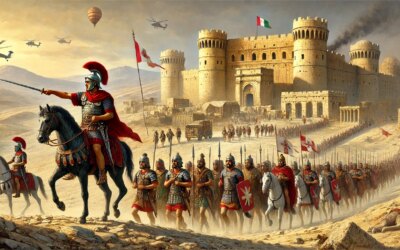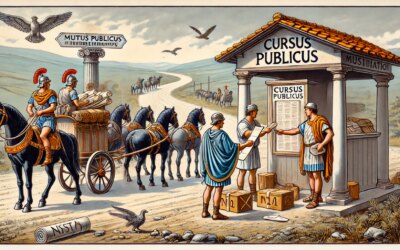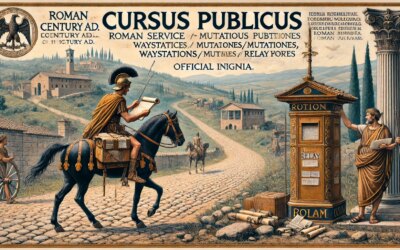Introduction: Honoring the Architect of an Empire
In 2 BC, the Roman Senate and people bestowed upon Augustus the title of Pater Patriae—Father of the Country—an honor that symbolized the culmination of his political and moral leadership. This act recognized Augustus not just as Rome’s ruler, but as the protector and patriarch of Roman society itself. The title reflected the deep gratitude of a populace who, after decades of civil war, enjoyed peace, prosperity, and stability under his reign.
Background: From Civil War to Pax Romana
Augustus, born Gaius Octavius Thurinus in 63 BC, rose to power after the assassination of his great-uncle and adoptive father Julius Caesar. Through a series of political alliances, military victories, and shrewd reforms, he emerged as the unchallenged leader of Rome by 27 BC. Declared Princeps, or “First Citizen,” Augustus carefully maintained the facade of republican governance while exercising imperial power, ushering in the Pax Romana—a golden age of peace and prosperity.
The Road to “Father of the Country”
Augustus’ leadership was marked by major accomplishments: reorganizing the army, securing the empire’s borders, reforming the tax system, and launching massive public works projects. His moral legislation aimed to revive traditional Roman values, emphasizing family, piety, and civic duty. By 2 BC, after decades of wise rule, the Senate, equestrian order, people, and army unanimously agreed to honor Augustus with the title Pater Patriae.
The Ceremony in the Roman Forum
The ceremony took place in the Roman Forum, the symbolic heart of the Republic and Empire. Senators, magistrates, and representatives of the people gathered to present Augustus with a laurel crown, an inscription proclaiming his new title, and widespread acclamations. Augustus accepted the honor with typical modesty, framing it as a reflection of Rome’s collective strength and virtue rather than his own personal achievement.
The Meaning of Pater Patriae
To the Romans, the title carried immense weight. The Father of the Country was expected to embody the ideals of care, guidance, protection, and moral rectitude. It was not a title conferred lightly, nor was it merely ceremonial—it reaffirmed Augustus’ role as the moral and political center of Roman life, binding the emperor’s authority to traditional Roman values of duty and familial devotion.
Political Implications
Bestowing the title solidified Augustus’ political legitimacy at a time when monarchical power still carried the taint of tyranny. It framed his rule not as domination but as a paternal stewardship over the Roman people. This careful blend of authority and republican nostalgia would be crucial to the long-term survival of the Roman Empire under his successors.
The Legacy of Augustus and Pater Patriae
Subsequent emperors often sought the title Pater Patriae as a mark of their acceptance and approval by the Senate and people, though few would command the universal respect that Augustus did. His reign set the template for imperial rule, balancing autocracy with tradition, innovation with reverence for the past.
Conclusion: The Birth of a New Rome
Augustus’ acceptance of the title Pater Patriae in 2 BC was a defining moment in Roman history. It encapsulated the transformation of Rome from a fractured republic into a unified empire under a single guiding hand. Augustus’ leadership reshaped Rome’s destiny and left an indelible mark on world history—a legacy fitting for the man revered as the Father of the Country.






